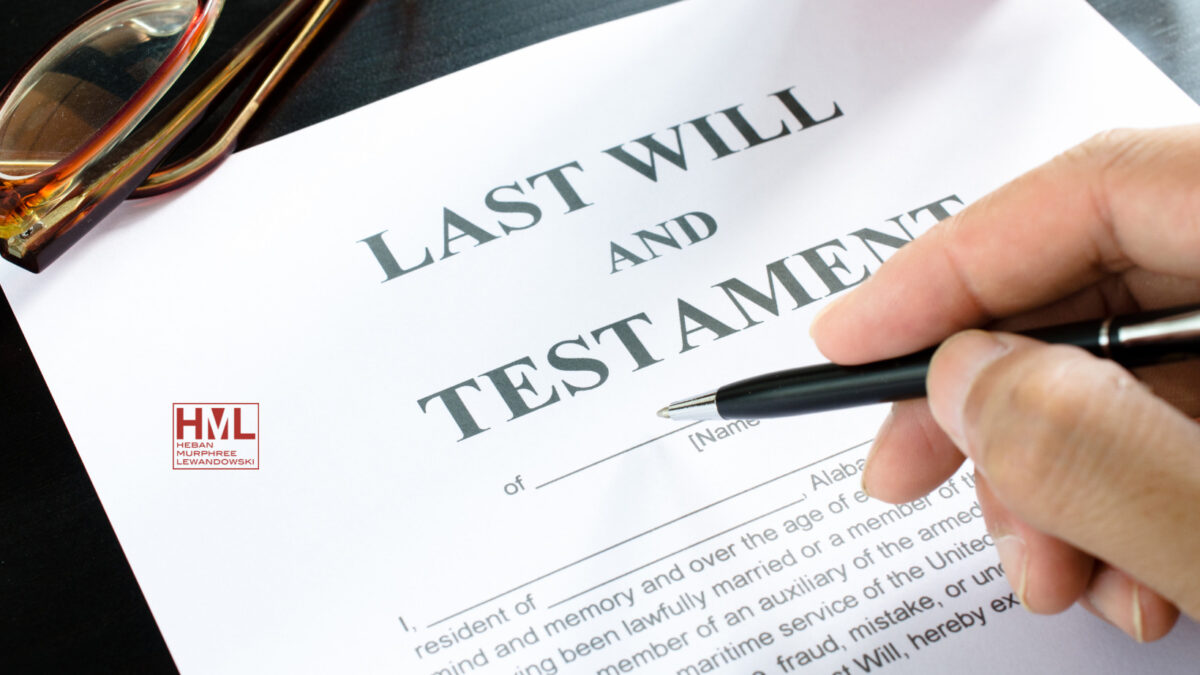- EXPERIENCED LAW FIRM IN TOLEDO, OH
- (419) 662-3100
Fraud in Will Creation

The Legal Impact of Remarriage on Your Estate Plans
July 2, 2024
Legal Strategies for Ohio Agricultural Operations
July 3, 2024How to Spot and Prevent Will Creation Fraud
Will creation fraud, a deliberate act of deception during drafting a will, is a serious issue. It involves providing false information to the testator, forging signatures, or coercing the testator into altering their intentions. This fraud can cause significant financial and emotional harm to the rightful heirs and beneficiaries. Understanding and preventing such fraudulent activities is crucial in estate planning.
It ensures that the testator’s true wishes are honored and that the estate is distributed fairly and legally. Seeking the guidance of an experienced estate planning attorney can help protect against these deceptive practices, providing peace of mind and preserving the integrity of the will.
Indicators of Fraud in Will Creation
Spotting will creation fraud often involves examining unusual or identical signatures that seem to be traced from previous documents, which can indicate forgery.
Moreover, discrepancies in the language and style of the will—such as changes in phrasing, tone, or legal terminology—can suggest that the document may have been tampered with or drafted by someone other than the testator. The presence of DIY estate plans created after formal attorney-prepared documents can also raise red flags, as these may lack the necessary legal rigor and could be more easily manipulated. Identifying these inconsistencies is crucial for challenging potentially fraudulent wills and ensuring the testator’s true intentions are respected.
Popular Methods of Forgery
Tracing or forging signatures, misleading or coercing the testator, unauthorized third-party signatures, and false pretenses or deceitful modifications are common methods used in will creation fraud. Each of these tactics undermines the testator’s true intentions and can significantly alter the distribution of the estate. Here are detailed descriptions of these fraudulent practices:
- Tracing or Forging Signatures: Copying a testator’s signature from previous documents to make a fraudulent will appear legitimate.
- Misleading or Coercing the Testator: Providing false information or applying undue pressure on the testator to change their will against their true wishes.
- Unauthorized Third-Party Signatures: Someone other than the testator signing the will, either with or without the testator’s knowledge.
- False Pretenses or Deceitful Modifications: Altering the terms of the will under deceitful circumstances, such as lying about the contents of the document or the testator’s intentions.
Real Life Example
In Ohio, an elderly woman named Margaret had her will professionally drafted to divide her estate among her three children equally. After her death, a new will surfaced favoring one child, John, with signatures identical to the original will, raising suspicion.
The investigation revealed several red flags: the signatures appeared traced, Margaret had dementia and was coerced by John, John’s unauthorized signatures were found, and the new will’s language differed significantly from the original. These patterns highlighted the need for a thorough investigation and legal oversight to prevent and address creation fraud.
Legal Remedies for Addressing Will Creation Fraud
If you suspect fraud in creating a will, you must take immediate action by consulting with an experienced probate litigator who can guide you through the legal process. The probate litigator and the court system will conduct a thorough investigation, which may include examining the will for forged signatures, analyzing discrepancies in document language, and uncovering any evidence of coercion or deceit. Witness testimony plays a vital role in these cases, as those who observed the will’s execution can confirm or dispute its authenticity.
Maintaining detailed records of any unusual behavior, conversations, or changes in the decedent’s intentions can also provide critical evidence to support the fraud claim.
Best Preventive Measures
To avoid will creation fraud, it is essential to take proactive steps to ensure your testamentary documents are authentic and secure. Working with an experienced estate planning attorney provides the expertise to draft a legally sound will and helps prevent fraudulent activities. Adopting best practices for signing and witnessing the will further safeguards its integrity. Regularly updating and reviewing your estate plans ensures they accurately reflect your current wishes and circumstances. Here are key preventive measures:
- Work with an Experienced Estate Planning Attorney: Ensures legal soundness and protection against fraud.
- Ensure Authenticity and Integrity: Use formal processes for signing and witnessing wills.
- Regularly Update Your Estate Plans: Reflects changes in your wishes and prevents outdated information.
Standing and Grounds for Contesting a Will
Legal standing is the right to bring a lawsuit to court, and it is crucial in probate cases involving allegations of will fraud. To contest a will, an individual must demonstrate that they are directly affected by the fraudulent document, such as being a rightful heir or beneficiary who stands to lose an inheritance. Proving harm involves showing clear evidence that the fraudulent will has altered the distribution of the estate in a way that negatively impacts the contestant’s inheritance.
This could include presenting signature discrepancies, document language inconsistencies, or evidence of coercion and undue influence. Establishing legal standing and demonstrating harm is essential to challenging a fraudulent will and seeking justice in probate court.
Need Legal Help?
At HML Law, we understand the importance of ensuring fair and fraud-free estate planning. Key steps include working with an experienced estate planning attorney, maintaining the authenticity and integrity of testamentary documents, and regularly updating your estate plans.
Vigilance in these areas is crucial to prevent will creation fraud and protect your legacy. If you suspect any fraudulent activity in creating a will, it’s essential to seek legal assistance immediately. Contact us today to safeguard your estate and honor your wishes.









